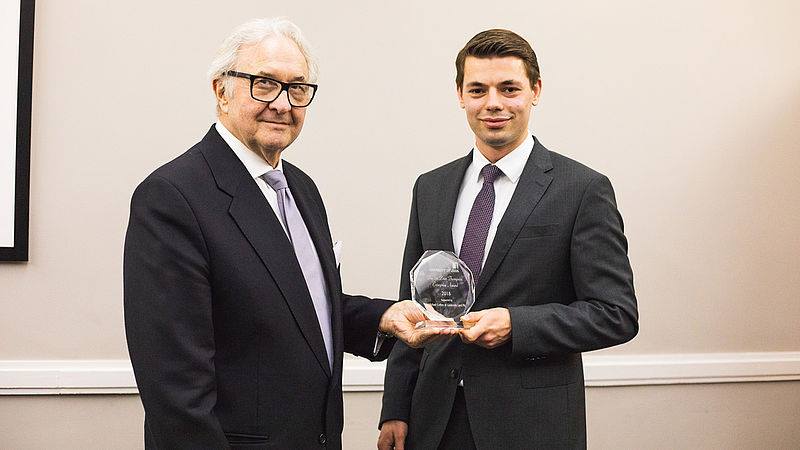The Gryphon interviews Tim Knickmann, cofounder of the business venture JetLink, a project aiming to make chartered air travel accessible.
As Tim relaxes in to his seat with a coffee in one hand and a cigarette in the other, it’s clear to see that he has already adopted the manner of a modern entrepreneur on the up. Having developed the idea to revolutionise chartered aviation through innovation, Tim and a group of his friends – Rory Spies, Henrik Polzer and Thomas Nellinger – recently won the University of Leeds’ most admired prize for entrepreneurship: the Sir Peter Thompson Enterprise Award. This annual prize, which is organised by the University’s start-up support centre, SPAR(K), has given these young entrepreneurs £5,000 from Sir Peter Thompson himself, in order to develop their business idea further.
Looking back on how far their team has come, Tim reflected on the inception of their idea: “We tried to reason why private aviation, why chartering a jet, is so expensive and why most business leaders and CEOs of small to midsized companies don’t fly private.” Despite the overwhelming cost of private air travel, chartered flight hours are expected to soar over the coming years; business jets flew roughly 450,000 charter hours for both long- and short-range flights in 2017. These figures provided by the German data company, WingX Advance, show an increase of over 10% in comparison to 2016. Furthermore, Adam Twidell, founder and chief executive of PrivateFly, is reported to have said that the European jet charter industry will see another year of “exceptionally high growth” in 2018.
If these figures are anything to go by, it seems that this group of young entrepreneurs has tapped in to a growth industry at just the right time. But what differentiates their business model from those of their competitors? According to Tim, unlike their rivals who have high overhead costs due to the luxuries they offer, JetLink would provide only the essentials: a small private plane that’s “still spacious and luxurious, but we don’t have a bar on board, we don’t have a stewardess and there’s one pilot.” Advantages associated with this strategy are that their smaller jet could take off and land at less crowded local strips, as opposed to popular airports where the costs associated with such a large terminal would increase expenses. In addition, by only offering short-distance chartered flights, they could ensure fuel economy – a cost saving which they would pass directly on to the customer.
Another unique selling point that JetLink has to offer is the ability to partly democratise private air travel. By leasing private jets from independent owners for a few months at a time, JetLink would avoid maintenance and storage costs, making private flights much more affordable for the everyday business person. Perhaps even more impressive than that, is their ability to calculate the most efficient route from A to B: “We’re working on some proprietary software which finds the closest airport from your departure to your destination, and you just connect the two and then a taxi at either end and you’re done.” Tim explained the concept further by estimating the flight time from Leeds University directly to the INSEAD Business School campus in Fontainebleau, France. Whilst a standard charter service would cost around £7,000, flying directly to Paris with a one-hour taxi ride from the airport, JetLink could cost as little as £3,500, by instead flying to a more rural location with a shorter taxi connection. With a total journey time of four hours from end-to-end in comparison to nearly six with an alternative provider, JetLink’s business model creates value for high-powered business people whose time equals money.
So, what’s the next step for this entrepreneurial team? Tim seems confident that their idea has the potential to be big: “We just have a super good background of experience just in all of us…[now] it’s about basically doing a feasibility study. We’ve been charging super hard this last year, so now we’re taking a step back.” Overall, the team now has intellectual property which they could potentially sell, whether they decide to take it further or not. Despite the stress and pressure of the development phase, it hasn’t impacted the comradery and friendship of the group either: “There’s been a lot of angry phone calls, but we’ve managed to persevere but also to say this is business, this is friendship.”
Having developed his financial abilities through his BSc in Economics and Finance at Leeds, as well as cash flow management skills working as the Advertising Executive for the Gryphon last year, Tim’s time at University has equipped him with valuable skills for later life, all of which have been utilised during this business experience. We asked Tim if he had any advice for budding entrepreneurs: “Go out and seize as many opportunities as you can. And if you are in the pub drinking too many pints and are like ‘let’s start an aviation company’, just go for it!”
Julia Constable

